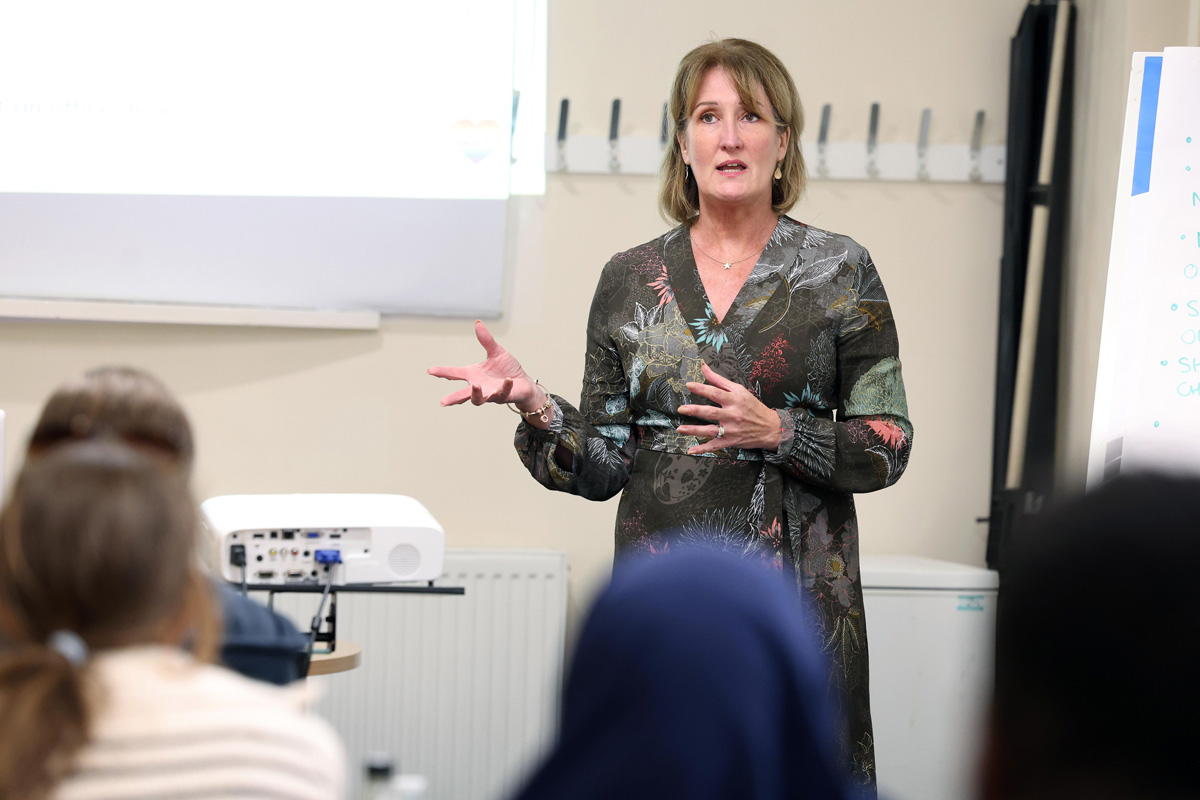Mental health and education gap of homeschooling must be addressed

Responding to ONS statistics published today on the impact of homeschooling during the coronavirus pandemic, Liberal Democrat Education Spokesperson Layla Moran said:
“Coronavirus has clearly impacted every aspect of life, including the wellbeing of parents and children, and the quality of education the majority of children receive. We must ensure no one is left behind.
“If it wasn’t for years of cuts to our schools and government failing to consult adequately with teachers and school leaders, it wouldn’t be this way. Ministers must now increase the necessary provision of laptops and introduce a Summer Learning Fund that supports the most disadvantaged children.
“Moreover, the Government must address the mental health impact of the pandemic by signposting the appropriate support services to every household, and properly funding the charities that provide those services.”
Coronavirus and homeschooling in Great Britain: April to June 2020 can be found here
Between 7 May and 7 June 2020, 87% of parents said a child in their household had been homeschooled because of the coronavirus (COVID-19) pandemic, with the percentage decreasing as the age of the only or eldest child increased.
Over half (52%) of parents with school-aged children said a child in their household was struggling to continue their education while at home, with just over three in four of these parents (77%) giving lack of motivation as one of the reasons.
While under 1 in 10 (9%) parents with a child who was struggling gave a lack of devices as a reason for struggling, this was significantly higher for households with one adult (21%) than households with two or more adults (7%).
Between 3 April and 10 May 2020, of parents who were homeschooling, one in three women (34%) agreed that it was negatively affecting their well-being compared with one in five men (20%), while 43% of homeschooling parents agreed that it was negatively affecting the well-being of their children.
The Liberal Democrats’ five-point plan for reopening schools to more pupils in England:
- Increase capacity for physical learning, by combining local spare space registers, so that local councils and school leaders can find suitable empty buildings in the community to use as learning spaces.
- Recruit an army of extra teachers to cope with demand. The Government should launch a Teach for Britain recruitment campaign to bring out-of-work supply teachers and recently-retired teachers into schools so more pupils can return. This builds on the success of the Social Work Together campaign, developed with the Local Government Association. Ministers should work with unions to get more teachers into learning spaces in any one school day.
- End the online learning void for thousands of children. Ministers should develop a bold strategy to leave no child behind by partnering with the private sector to get laptops and internet access to any disadvantaged child currently unable to learn online. The Government’s current target to provide 230,000 laptops has left out too many children. Councils are neither receiving the equipment they have asked for, nor seeing high uptake rates for the kit they’re given. The Government should launch a major advertising campaign to encourage families and children to ask for equipment, backed up by working with schools to get more physical resources including textbooks to children lacking internet or computer access.
- Design a flexible, phased reopening that follows the science and has the trust of parents and the profession by being developed with them, following the lead of Kirsty Williams in Wales. Schools should aim to begin the next academic year on time in September, but double the autumn half-term break to two weeks. We must recognise that many schools are doing a fantastic job at phased reopening, and ensure local authorities, academy trusts and government are learning from their successes.
- Halt the widening of the disadvantage gap. The Government should combine the summer provision of free school meals with an emergency uplift in child benefit of £150 per child per month, with £100 for every subsequent child, during this crisis. The catch-up premium should be worth at least £700 for every disadvantaged child eligible for the pupil premium, to enable schools and charities to give them a much-needed boost in the next academic year. Ministers should create a Summer Learning Fund so that councils can run summer learning camps for children, focused on local authorities in the most deprived areas. This will prepare children for September and give many children a positive environment in which to learn and re-acclimatise to an educational environment. The Government should fund places on these courses for children on free school meals.











Responses